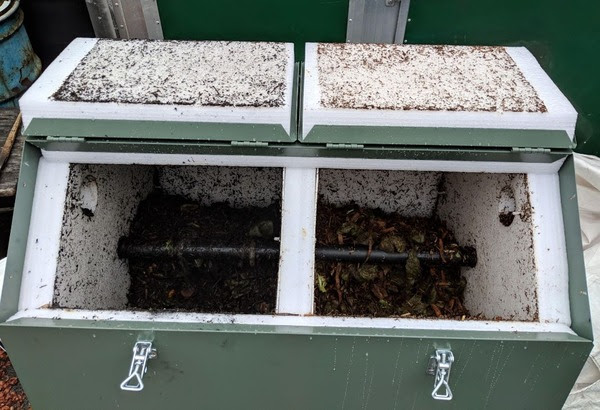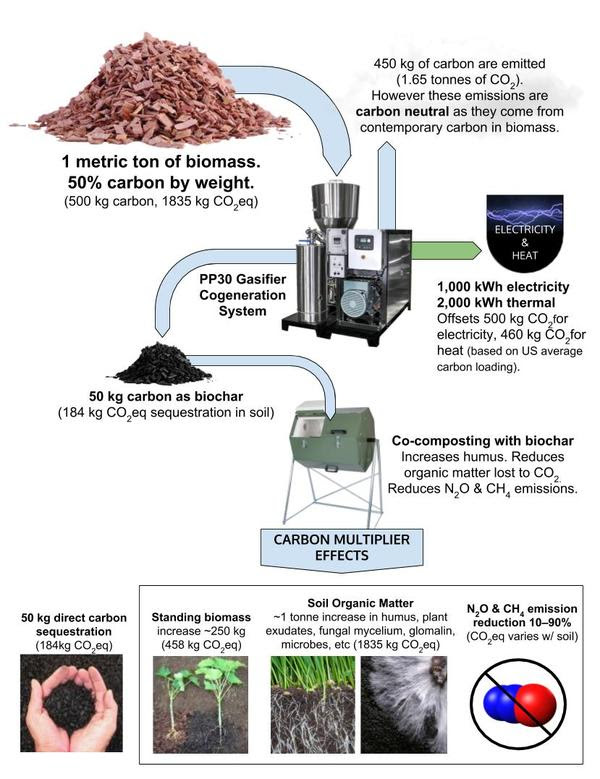

Our monthly Open House events continue this Friday with a talk and demonstration of the agronomic and climate benefits of co-composting with biochar. We’re convinced we’ve stumbled across a highly significant optimization for biochar usage and deployment with this co-composting scenario. The solution is uniquely high performance in soil, easy to do, leverages the already existing infrastructure of compost operations globally (personal, commercial, and municipal), and achieves carbon impacts far beyond the raw biochar entered into the system. We’ve spun off the Local Carbon Network to help promulgate the solution.
Resident biochar expert, Austin Liu, will be giving a presentation on the influence of biochar on the composting process, and the influence of composting on biochar surface features. Environmental and climate aspects such as mitigating the methane and N2O emissions of compost will be addressed, as well as the significant potential to achieve carbon drawdown multipliers through the co-composting process (i.e. further carbon drawdown beyond the raw carbon entered into the co-composting).
More practically, if you’ve had unpleasant experiences with composting (foul odors, slow decomposition, vermin, flies, angry neighbors, etc.) come see how that can be fixed. We’ll be showing off our new in-house composting experiment, where you can see the effects of co-composting biochar vs composting without biochar in a side-by-side comparison.
This co-composting process combines with APL CHP machinery to transform biomass residues into multiple types of value and climate impact. Adding the co-composting scenario out the end significantly multiplies the carbon drawdown impact of the biochar generated. The specific type of high temperature biochar produced in APL machinery uniquely enables the carbon multiplier pathways summarized in flow chart below. Flow chart assumes the current 5% biochar yield rate of the APL electricity and heat focused equipment. Higher yield rates are of course possible with other types of biochar focused equipment.

As usual we’ll have the PP30 Cogen CS machines running onsite for your consideration. Food and drink are free for all attendees.
Facility tours start at 5pm. Talk starts at 6pm. 1010 Murray Street, Berkeley, CA
Please RSVP here so we know who is coming.
For more information on the content for the talk, or for those who cannot make it, here are two documents to explore more of the technical details of co-composting with high temperature biochars.
1. “All Biochars are not created equal”. Intro to the APL biochar scenario.
2. Austin’s presentation deck from last round of this talk. Updates for this Friday still in process.
Hope to see you on Friday.
Jim
